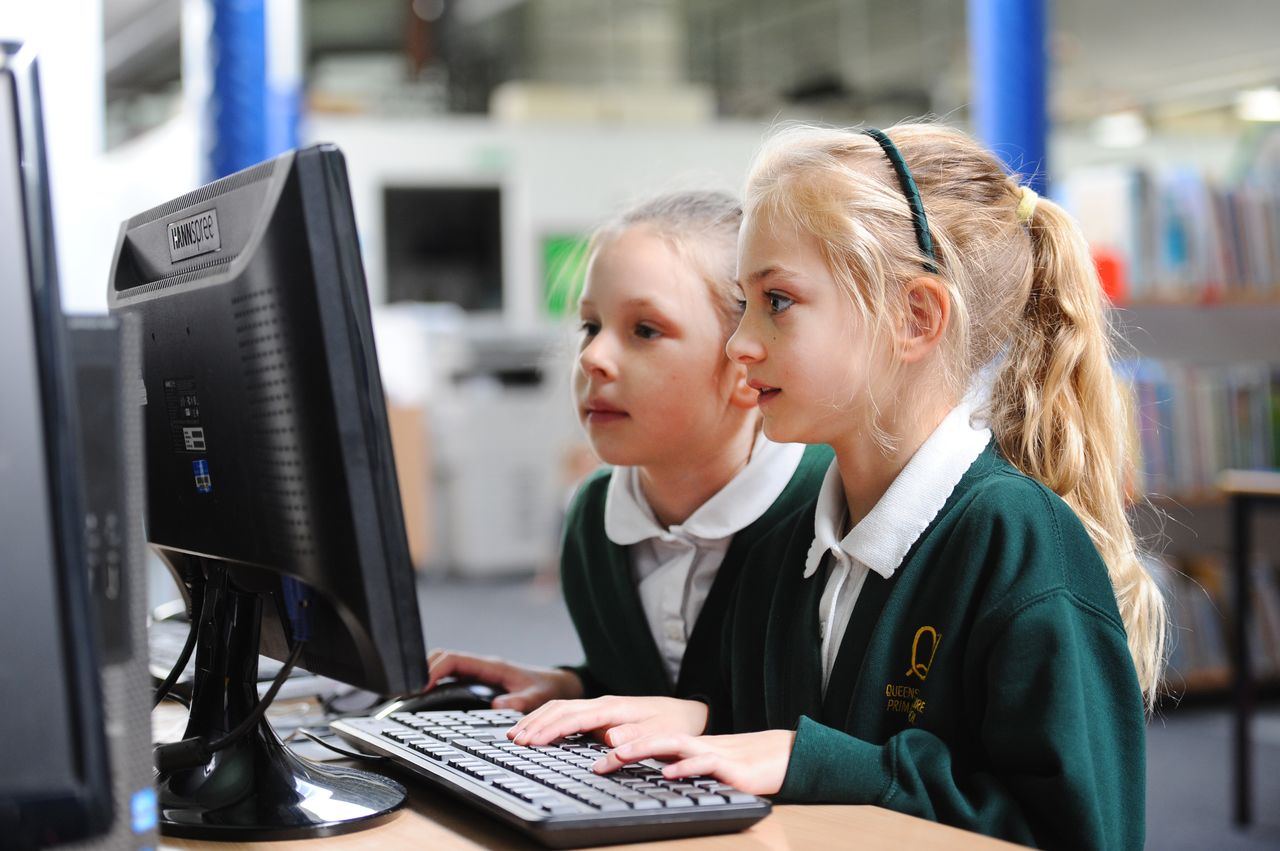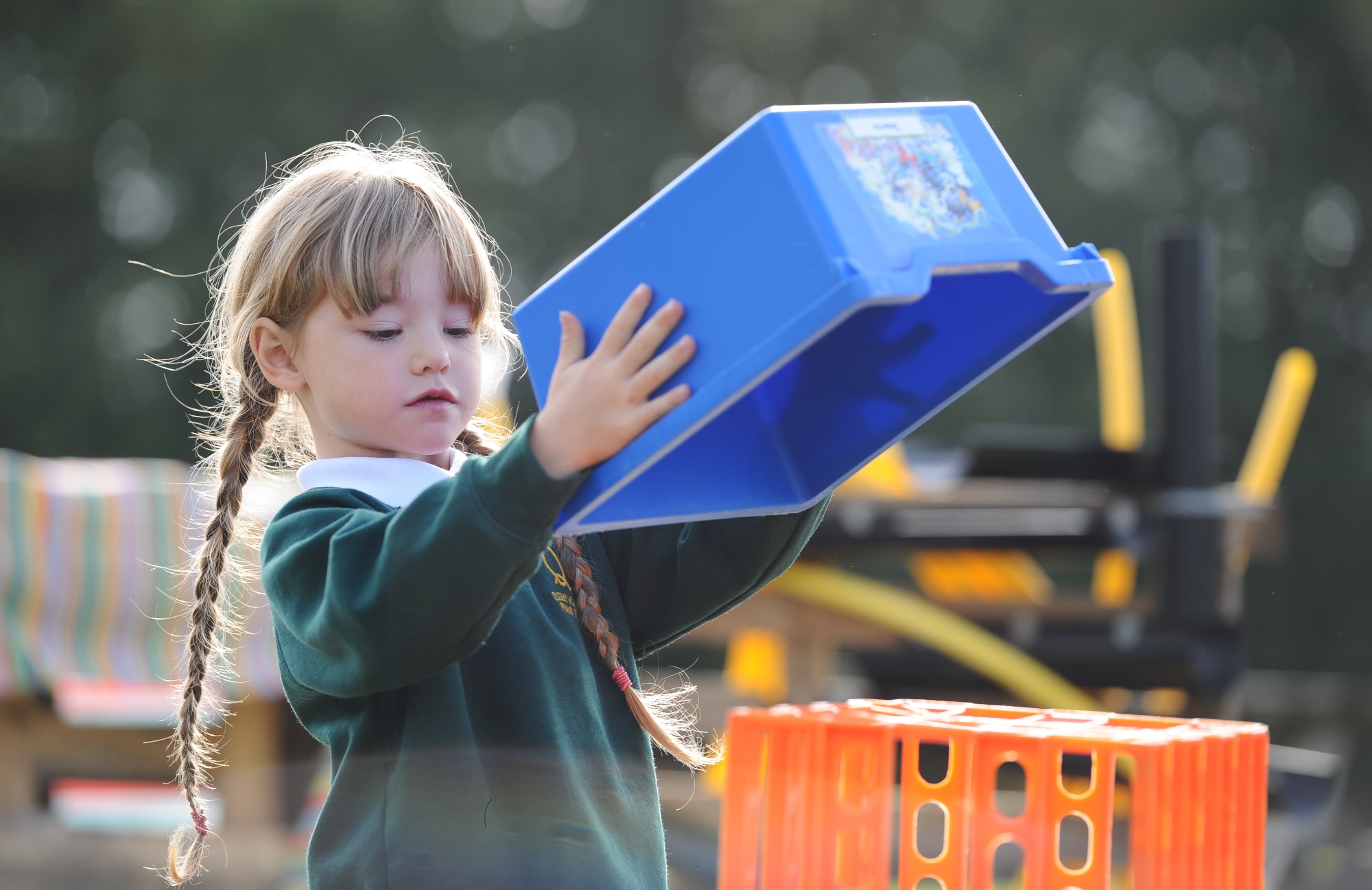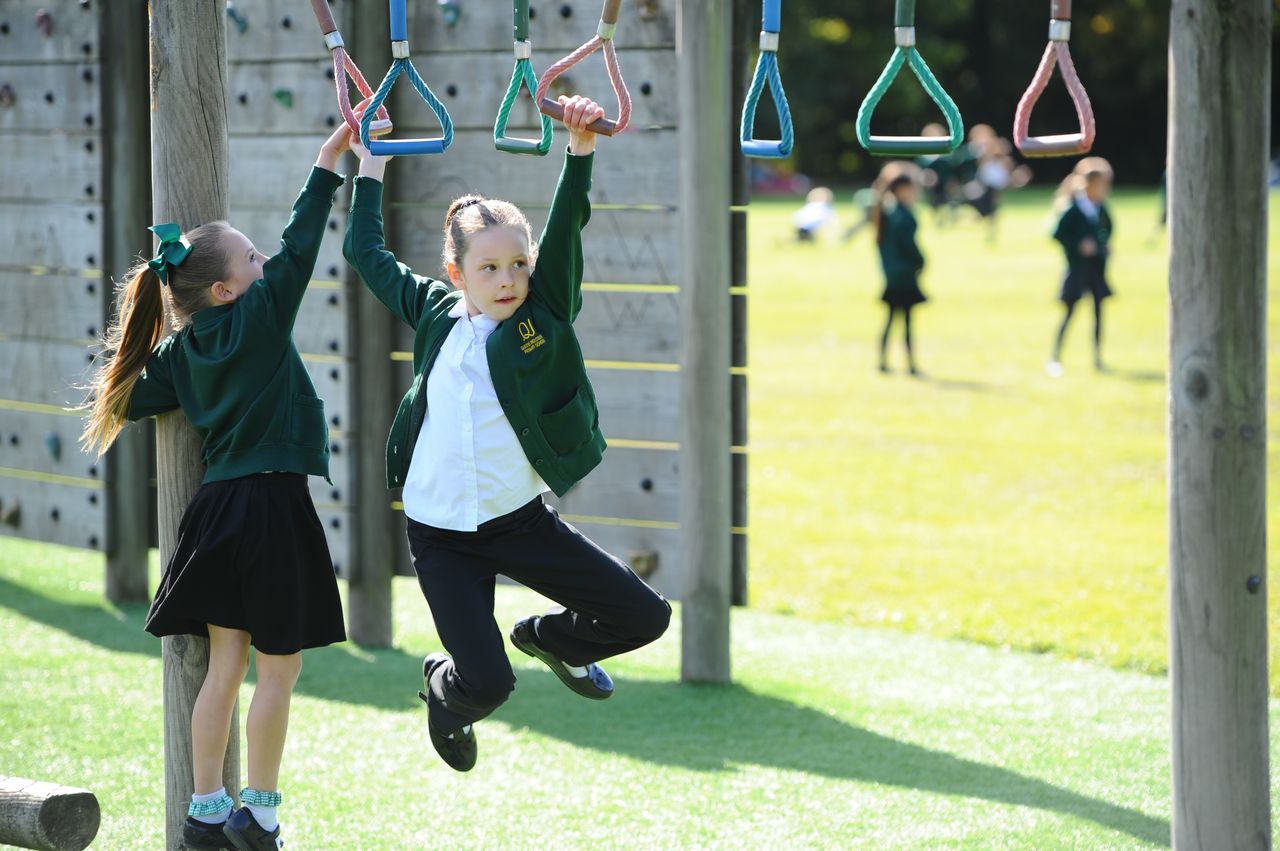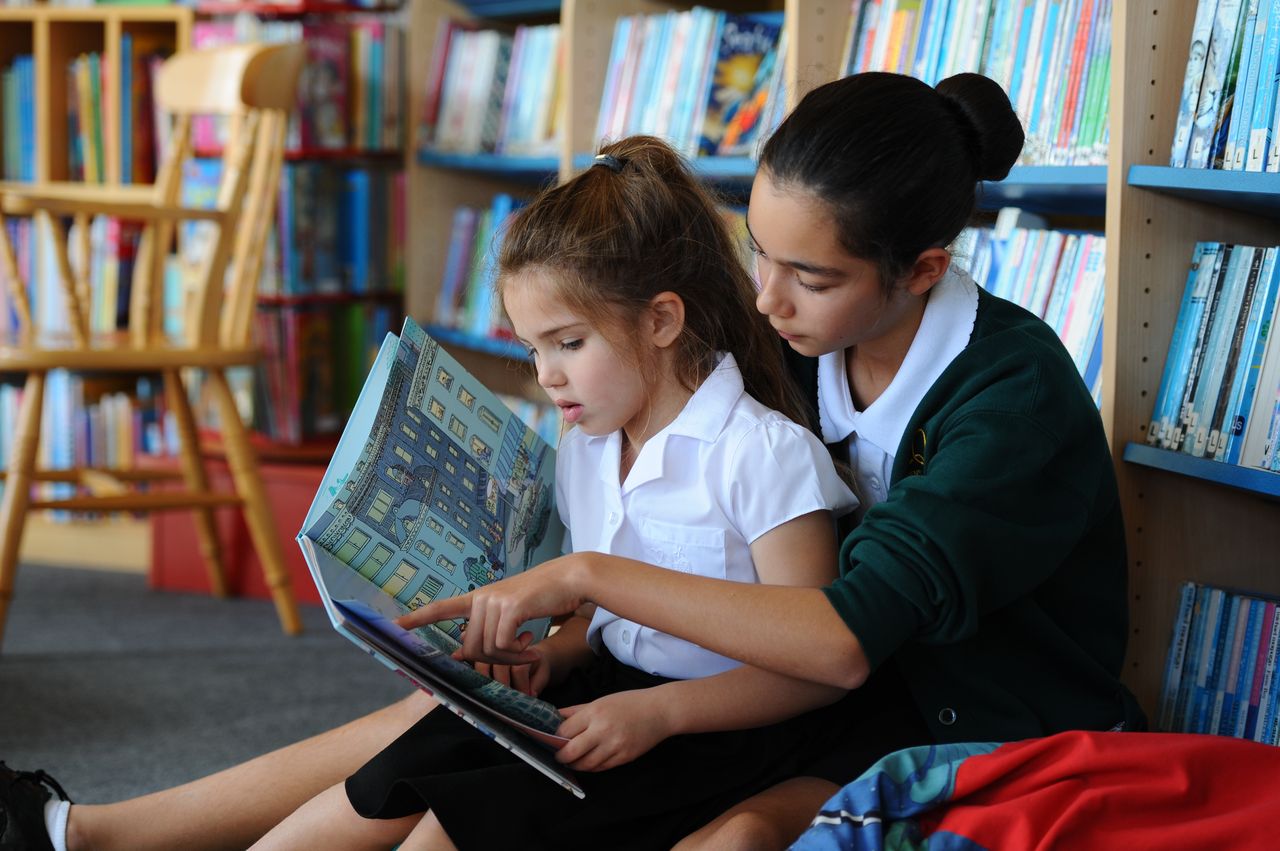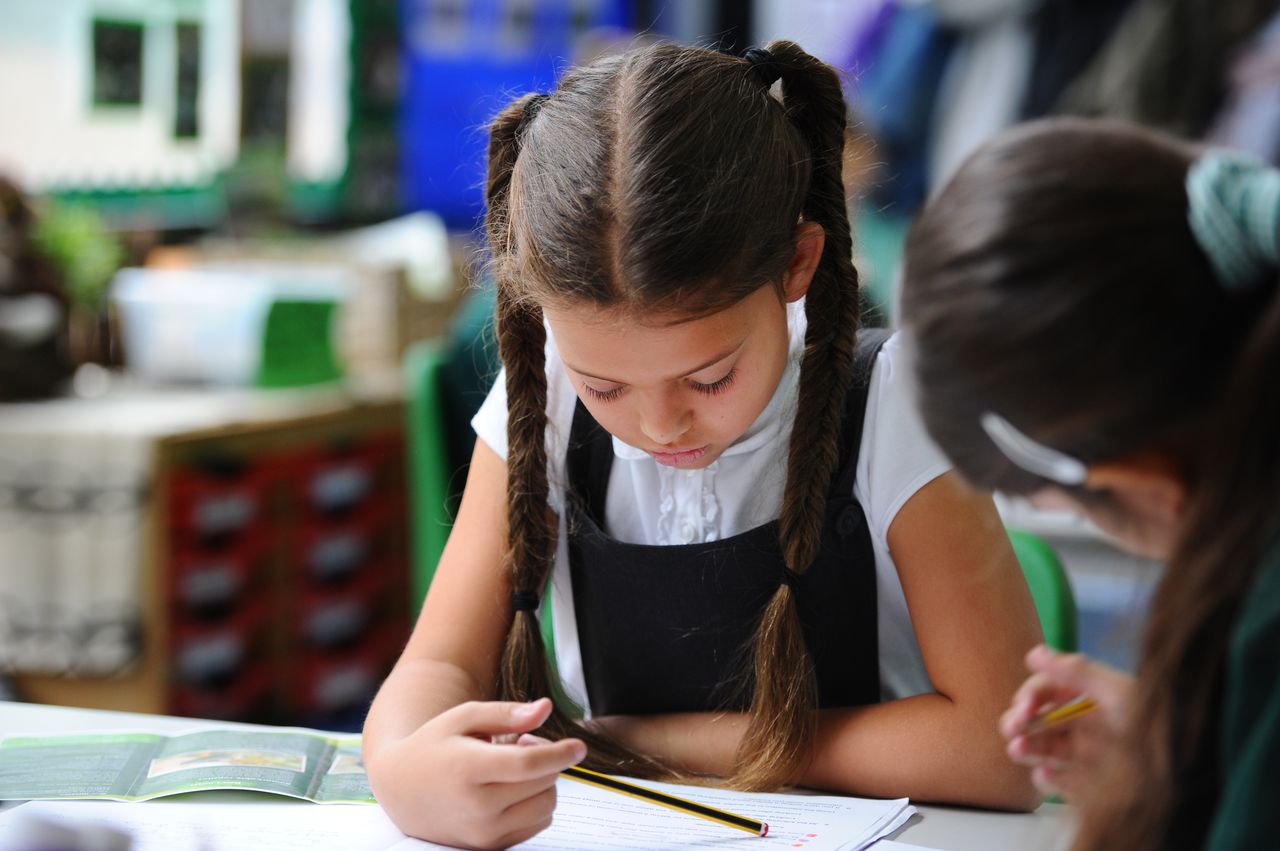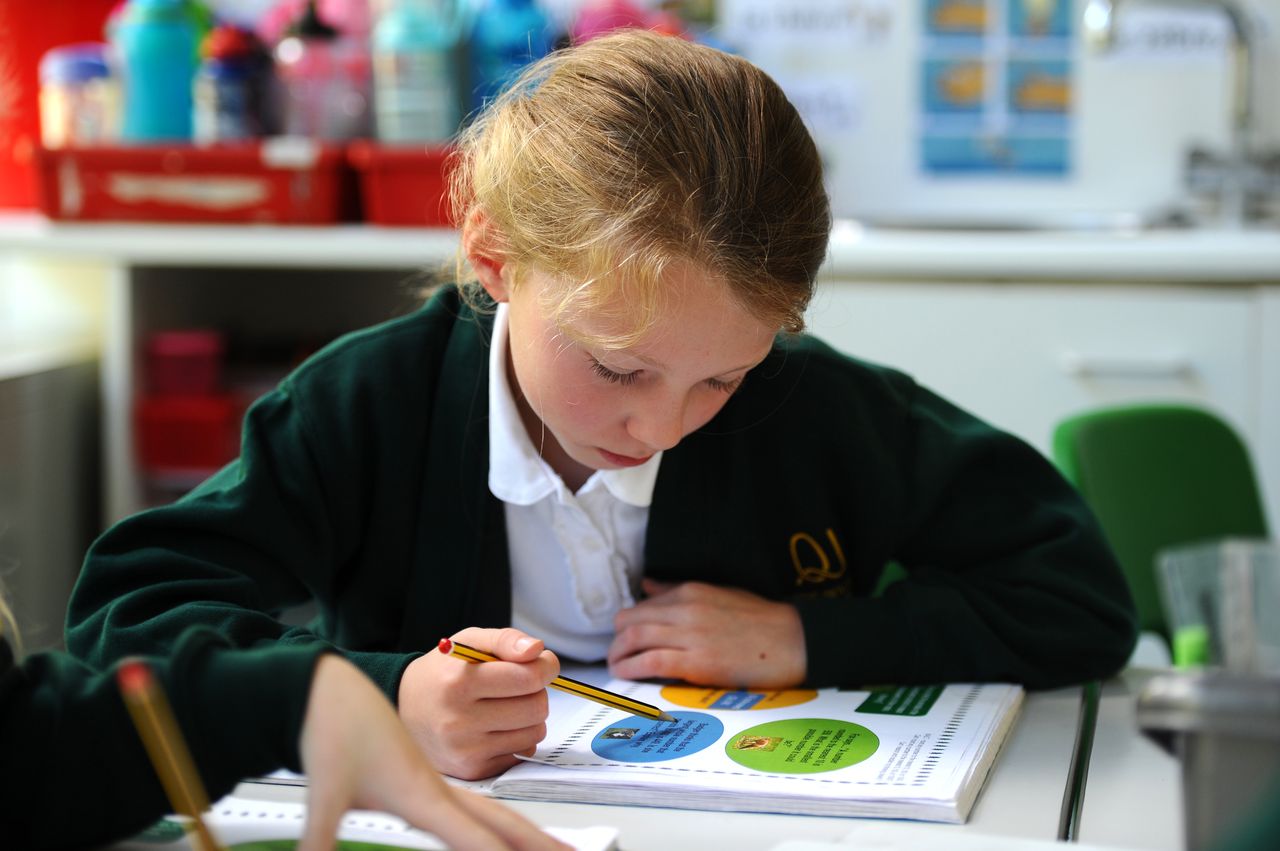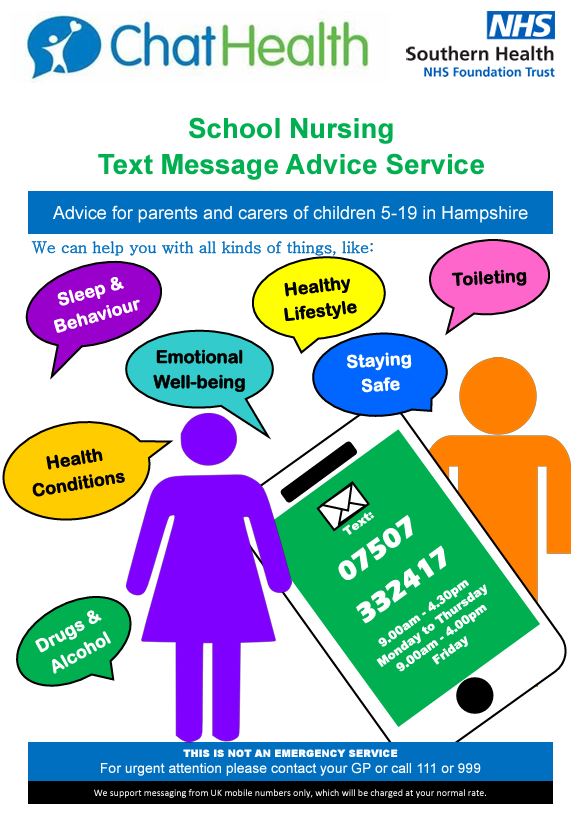Support for Families
QI has a Child and Family Support Worker - Miss Carla Farrell
The role of a Child and Family Support Worker is to provide support for parents, carers and families to help with attendance and punctuality, set up eating or bedtime routines and also help with promoting positive behaviour. The CFSW can also signpost to other services that may be useful to families.
During term time, our CFSW will work in partnership with parents/carers, the school or other agencies to support our families. This aims to reduce current issues and prevent future difficulties and promote a happier home environment, which will benefit the child in school. If you feel you need support with your child at home, please speak to your child’s class teacher about the concerns you have or pop into the office to speak to Carla.
We hope that the following information may be of some help to families.
Smartphone Free Childhood
Resources for parents:
SFC Papaya Parent Presentation - on the risks of smartphones and what you can do
A powerful presentation that Jonathan Kirkham sent to his parents, explaining the problem and the solution.
The Smartphone Dilemma - and how to solve it - a persuasive film from SFC on the problem, and the solution
A Stolen Childhood - a compelling short film on the issue
Sign the Smartphone Free Childhood Pact - to find solidarity with parents in your child’s peer group.
We would like to share some of the most recent material that has validated and evidenced the benefits of children experiencing a smartphone-free childhood.
Book - The Anxious Generation by Jonathan Haidt The Anxious Generation: How the Great Rewiring of Childhood Is Causing an Epidemic of Mental Illness: Amazon.co.uk: Haidt, Jonathan: 9781802063271: Books free on Audible or £8.99 paperback.
There are also YouTube links to watch/listen to:
Jonathan Haidt on the Rise of The Anxious Generation (Part 1)
Jonathan Haidt on the Rise of The Anxious Generation (Part 2)
Jonathan Haidt | The Anxious Generation and the Epidemic of Childhood Mental Illness
The Anxious Generation the Great Rewiring of Childhood Is Causing an Epidemic of Mental Illness
Haidt advocates that we all speak up and link up to bring about reform.
-
If you think a phone-based childhood is bad for children and you want to see a return to a play-based childhood, say so! Speak to your friends, neighbours, coworkers, social media followers and your political representatives.
-
If you are a parent, connect with other parents who value a play-based childhood and more childhood independence.
-
If you have children in school, join with other parents to speak directly to the school and share ideas.
-
If you are a teacher, talk to your fellow teachers and urge your school to reconsider its policy on phones and devices.
-
If you are a member of Gen Z, consider one of the organisations founded by members of your generation to bring about change - your words would be the most powerful of all
“It's time to end the experiment. Let's bring our children home.”
Anxiety Information
Anxiety Information Session Presentation
Anxiety Leaflet - Tips for Helping Your Child
Anxiety - Changing Anxious Thoughts - task sheet
Anxiety On My Mind - task sheet
Anxiety - My Peaceful Snapshot - task sheet
Anxiety - Stress Action Plan - task sheet
Mindfulness Exercises for Children
Worry Exploration Questions - task sheet
Anxiety the top mental health concern for children contacting NSPCC Childline service
Improving Children's Mental Health
The children's mental health charity, Place2Be, has a website aimed at helping parents with typical situations they can find themselves in with their children.
Advice can be found on over forty topics including:
|
 |
The Parenting Smart website can found here: https://parentingsmart.place2be.org.uk/
Mental Health and Wellbeing
Mental Health and Wellbeing
Some children and young people may be experiencing feelings of anxiety, stress or low mood as a result of the coronavirus (COVID-19) outbreak.
Schools and colleges will continue to offer pastoral support to any pupils who need to work remotely.
Support for children and parents
There are a range of online resources to help you support your child with mental health and wellbeing, including:
- MindEd - a free educational resource on children and young people’s mental health
- Every Mind Matters - an online tool and email journey to support everyone in taking action to look after their mental health and wellbeing
- Bereavement UK and the Childhood Bereavement Network - information and resources to support bereaved pupils, schools and staff
PHE’s advice and guidance for parents and professionals on supporting children and young people’s mental health and wellbeing includes key actions you can take to support your child. It also emphasises the importance of children continuing to remain fit and active and, wherever possible, having the recommended 60 minutes of daily physical activity. Youth Sport Trust and Sport England have advice and support on helping children and young people stay physically active.
Use the DfE blog to find mental health resources for children, parents, carers and school staff.
NHS mental health services remain open, and have digital tools to connect with people and provide ongoing support. Please use your local children and young people’s mental health service when needed.
Support for children and young people
Get free, confidential support at any time by:
- texting SHOUT to 85258
- calling Childline on 0800 1111
- calling the Mix on 0808 808 4994
Find help online through:
- Young Minds - information on coronavirus (COVID-19) and mental health
- Think Ninja - a free app for 10 to 18 year olds to help build resilience and stay well
- Every Mind Matters - building resilience and supporting good mental health in young people aged 10 to 16
PHE has also launched new e-learning which can help parents and carers to support their children and young people in emergency or crisis situations.
Barnardo’s See, Hear, Respond service, provides support to children, young people and their families who are not currently seeing a social worker or other agency, and who are struggling to cope with the emotional impacts of coronavirus (COVID-19). Use the See, Hear, Respond self-referral webpage or Freephone 0800 151 7015.
It is also vital to report any safeguarding concerns you have about any child. Contact the NSPCC helpline.
Helping your Child - Emotional Wellbeing
Read this excellent Advice from the British Psychological Society.
Be open and honest, in an age appropriate way, when speaking with your child.
If you don't know an answer, it is okay so say so. If possible, suggest finding an answer together.
Set aside time to talk about the day and how your child is feeling. The Young Minds charity has advice about Conversation Starters.
Role-model talking about your own feelings and show how you manage them; this will help your child to learn their own strategies. Explain that all feelings are ok. We just need to learn how to share them and cope appropriately.
If your child's behaviour is out of control, step back and wait for a situation to calm down before speaking with them.
If your child does not want to share their thoughts or feelings, you could suggest writing them down, if they would like to that instead.
You may find this Flyer about Anxiety from our Parent Support Worker helpful.
The Hampshire and Isle of Wight Educational Psychology run a telephone support line - 02392 441497 during the current COVID-19 pandemic, which is open to parents/carers on Tuesdays, Wednesdays and Thursdays 9:30am - 11:00am.
You may find the following information on anxiety useful: What is Anxiety? and Tips for helping your child manage worries and anxiety.
Please also see this Family Wellbeing Pack during COVID1 from the Havant School Nursing Team.
Useful Links:
Crisis Line for Children and Young People (Hants and IOW Leaflet)
Helping your Child - Sleep
The environment your child sleeps in is important.
| TRY TO | AVOID |
|
|
Also, have a routine and keep it consistent:
- Allow time for relaxing together, including bath time and reading a story.
- There should be no technology during the bedtime routine - ideally not for an hour before bed.
- Plan in time for talking 1-1. Speak about the day and offer encouragement. Each day starts afresh so do not continue talk about anything negative from today, rather focus on moving forward.
- Check if your child needs the toilet or drink at a suitable time before bed so they are not asking for these things after saying goodnight.
The Children's Sleep Charity offers tips on Bedtime Routines and Relaxation Tips for Bedtime.
Helping your Child - Behaviour
Helping your Child - Motivation for Learning
Read our suggestions in Motivating your Child when 'Learning from Home'
Other Useful Links for Parents
Children's Health and Development:
Child Protection:
Child Protection (Hampshire County Council)
Hampshire Safeguarding Children Partnership (leaflet)
Relationship Counselling for Individuals, Couples and Families:
Single Parents:
Domestic Abuse:
Coronavirus (COVID-19): Support for Victims of Domestic Abuse
Mental Health:
Guidance for the Public on the Mental Health and Wellbeing Aspects of Coronavirus COVID-19
Mental Health and Wellbeing (NHS)
Free Digitial and Numeracy Courses:
The Skills Toolkit (online government campaign)
Online Safety Tips:
Artificial Intelligence Safety Tips for Parents

